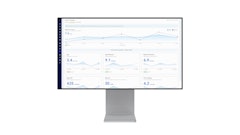
Makersite releases research conducted by Forrester Consulting, titled “Transform Product Sustainability into Performance Initiatives with Product Lifecycle Intelligence,” that reveals over half of organizations’ sustainability efforts are driven by regulations despite the benefits from adopting more sustainable product lifecycle intelligence (PLI).
Currently, manufacturers struggle to translate compliance initiatives into making informed decisions during the product design phase due to outdated data systems and data silos. The study, commissioned by Makersite, shows that by implementing PLI to integrate data held within their systems, product engineers in the design phase can create products that are more sustainable (30%), have faster time-to-market (28%) and reap higher profits (26%).
The 2024 study, which included insights from 493 respondents with product design and sourcing decision-makers in manufacturing, also pointed to several operational improvements including the ability to support product lifecycle decisions with better data quality (29%), improved visibility of materials and component supply chains (28%), and more efficient sustainability reporting (28%).
Despite the benefits, however, respondents reported experiencing challenges while securing executive support for incorporating sustainability in PLI (53%), measuring and quantifying the environmental impact of their products (51%), and obtaining budget to gather material, component, and supplier intelligence integral to optimizing their product’s quality, cost, and sustainability (50%). These difficulties are a manifestation of poor maintenance of availability, cost, sustainability, and performance data in manufacturers’ material and component libraries – an issue for 49% of decision-makers.
“We are amidst an unprecedented revolution that is changing not just the products we make, but how we make them. Companies that are set up for rapid change are becoming the new leaders of tomorrow and we’re already witnessing this evolution amongst our customers including Cummins, Vestas and Microsoft, among others,” says Neil D’Souza CEO and founder of Makersite. “Unfortunately, companies have only a piece of the data needed to make decisions quickly – the internal view. Most of the data needed, comes from the world outside – supply chains, costs, regulations, impacts and others – this is the external view. The ability to combine the two instantaneously to drive better decisions and tradeoffs will avoid costly mistakes, shorten time-to-market and create more sustainable and successful products.”
Key Takeaways:
- Mature manufactures expect a 25% uplift across key metrics by implementing PLI: This includes positive impacts to win rate, time to market, price premium, employee attrition, and cost of capital. Meanwhile, novices expect key metrics to rise a minimum of 15%.
- Despite this, product design and sourcing sustainability metrics are manually and inconsistently tracked: Over two in five of those surveyed confess to haphazard or nonexistent monitoring of critical sustainability metrics such as waste generation (43%), scope 1 and 2 (42%), scope 3 (41%) greenhouse gas emissions, and recycled or reused materials or components (40%) was either manual, ad hoc or non-existent. Further, less than 35% of manufacturers have fully automated routine reporting for any specific metric.
- Advanced analytics to navigate product development remains underutilized by manufacturers: 87% of leaders assert their organizations assess and incorporate regulatory changes into their business models, but a mere 30% of manufacturers leverage reporting data in predictive modeling and forecasting to meet standards or regulations.
- Over a third of manufacturers’ core focus is strengthening regulatory compliance: Most Europe-based leaders rated this as their top priority, compared to it being the 5th highest in the U.S.
- Data quality is key to efficient product design and sourcing: 42% rate enhancing the data quality of their environmental impact assessments the most helpful in a shift to efficient and effective product design and sourcing, followed by harmonizing product and supply chain data to improve collaboration among stakeholders (40%).


























